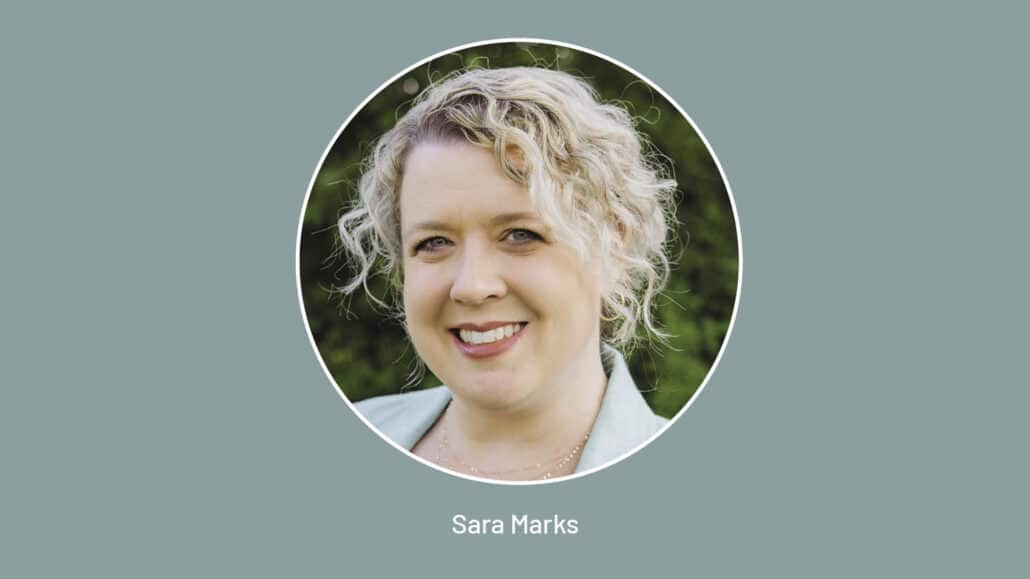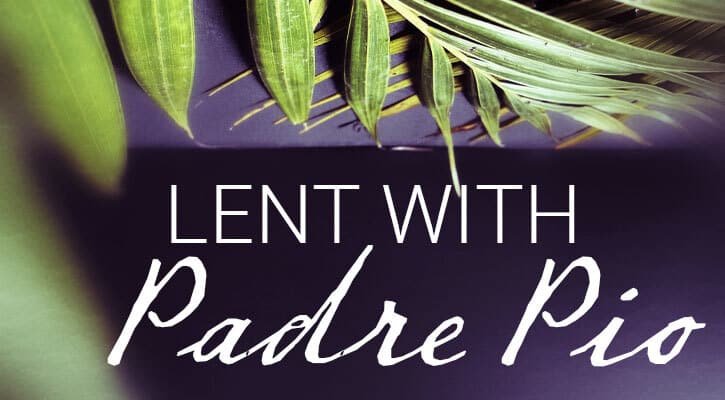The rolling hills of Chester County, Pennsylvania, west of Philadelphia, formed the natural backdrop of Sara Marks’ childhood and played a major part in her upbringing and identity. “Imagine an [Andrew] Wyeth painting, and you will see the landscape of my youth,” she says. Now the executive director of the Franciscan Federation (FranFed.org) and, working on her dissertation in the doctoral program for organizational studies at Eastern University, Sara’s early life was humble, but enriching.
“I was born a country girl and, in many ways, still thrive from those roots,” Sara says. “My mother graduated college and law school when I was a young girl. My father owned and operated his own electric motor repair shop out of our garage. My first summer job was a secretarial position at my father’s business, I graduated to rewinding electric motors and painting the finished fixed motors by the time I was in high school.”
Music, like the Catholic faith, was ubiquitous at home, and Sara often would accompany her father in his country-western band in the evenings, singing classics from Loretta Lynn, Patsy Cline, and others. His passing when she was just 28 years old was devastating, and, to this day, is the “greatest loss of my life,” she says. Still, the life lessons he taught and the priceless memories they shared fill Sara with a deep gratitude that make the sting of grief more manageable.
Sara’s parents were a bit unconventional when it came to discipline and gave her and her two siblings the chance to negotiate when they got into trouble and were handed a punishment for their misbehavior. As long as the counterargument was well-reasoned, there was room for negotiation. This was an early lesson in how to engage in dialogue, a skill that Sara has continued to sharpen to this day.
Seeds of Vocation
While studying literature at West Chester University, Sara became deeply involved in the Newman Center, where the seeds of her vocational journey were planted. It was during this time that she began her formal discernment with the Sisters of St. Francis of Philadelphia. She also developed a passion for campus ministry, leading to her next step: graduate studies in pastoral ministry at the University of Dayton, a Marianist school. “To this day, I refer to myself as 100 percent Franciscan with a dash of Marianist!” Sara says. After completing her graduate degree, she worked in campus ministry at Alvernia University and, later, Neumann University (both Franciscan institutions) while she discerned her vocation.
Sara entered the Sisters of St. Francis at the age of 27 and thoroughly enjoyed her candidacy phase of formation. However, the opposite was true of her experience in the novitiate stage, which Sara says is true for many entering religious life. Although she professed her vows in 2013, she chose not to renew them, and three years later moved into her grandfather’s old house. Another former woman religious, Connie Murphy, joined her there, where they “build community and are still highly involved in our former religious life communities,” Sara says.
This is a humble description of Sara’s work these days, as her role as executive director of the Franciscan Federation has her connecting Franciscans and Franciscan organizations of all stripes across the country and beyond.
But it took a pandemic to bring Sara to the federation’s doorstep.
A Twist in the Path
She had been working as the director of an organization called Franciscan Volunteers: No Risk, No Gain since 2015 and was planning on continuing in that capacity until she finished her PhD in organizational leadership. However, when the COVID-19 pandemic swept across the country in 2020, she found herself out of work, but, thanks to a generous severance package, she had time to discern her next move. That August, Sara started her own consulting business for religious communities, Fina Catalysts, LLC, which is how she became connected with the Franciscan Federation.
The federation’s origins reach back to the 1960s, when a number of Franciscan women’s communities saw the deep potential in collaboration and set out to establish an organization that would facilitate their partnerships. Over time, the network expanded to include Third Order Regular friars and others in the Franciscan universe. According to its website, the Franciscan Federation “promotes the exploration and study of Franciscan Evangelical Life and its implications for our world today, provides networking opportunities and resources to further ignite Franciscan values, and provides space for the emergence of new ideas.”
Community is the key ingredient to living out the vision of the federation. Sara’s favorite story about St. Francis drives home how crucial community is to the Franciscan charism. “It’s the story where the people of Assisi and Bettona looked down upon St. Mary of the Angels Church and saw it engulfed in flames,” she explains. “Out of fear that the church was burning to the ground, the people of the towns ran with buckets of water to save the building. But upon their arrival, they found nothing burning.” As the story goes, inside were Francis, Clare, and their companions sitting around a table, deep in prayer and contemplation.
This and many other stories of the early days of the Franciscans remind Sara that “nothing is done in a silo. I live my life in community and through prayer and contemplation, which lead to action.”
Following in St. Francis’ footsteps on her own terms has only brought Sara closer to the Poor Man of Assisi’s way of life and vision for the world. “I truly believe I was born Franciscan, and it just took living life to come to understand that deep sense of self and the spirit that was always there,” she says.








